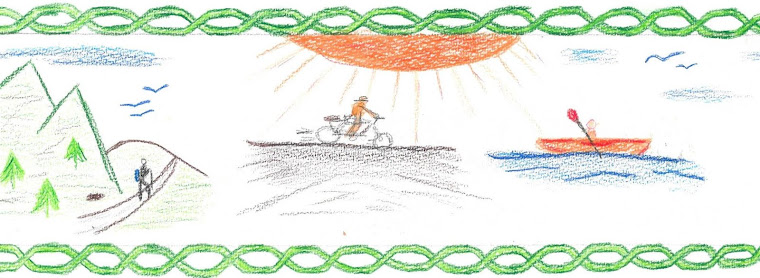Lectionary Ruminations 2.5 is a further revision and refinement
of my Lectionary Ruminations and Lectionary
Ruminations 2.0. Focusing on The Revised Common Lectionary Readings
for the upcoming Sunday from New Revised Standard Version (NRSV) of the Bible, Lectionary Ruminations 2.5 draws on over thirty years of pastoral
experience. Believing that the questions we ask are often more important
than any answers we find, without over reliance on commentaries, I intend with
sometimes pointed and sometimes snarky comments and Socratic like questions, to
encourage reflection and rumination for readers preparing to lead a Bible
study, draft liturgy, preach, or hear the Word. Reader comments are invited and
encouraged.
ISAIAH 65:17-25
65:17 What is the quality of this “new?” I suggest
it is not just a statement related to time. What is the difference between Chronos
time and Kairos time? Why would former things not be remembered or come to
mind? This verse reminds me of the conclusion of C.S. Lewis’ The Lasrtl
Battle.
65:18 Note that God is “creating.” How might
Process Theology help us here? How is Jerusalem today a joy and its people a
delight?
65:19 Is this a promise still unfulfilled?
65:20 While infant mortality has been addressed by
modern medicine, modern medicine still has not raised the expected life span to
one hundred years. Are we all accursed? Could this be hyperbole?
65:21 But where shall those houses be built? Shall
they be built on Palestinian Arab land? Who today plants but does not eat the
fruit of their planting?
65:22 Do these verses have anything to say
regarding contemporary economics? What might Henry Ford have to say about
these verses? What might Karl Marx have said?
65:23 How might the current American economics and
politics shed light on this verse?
65:24 Does this have any implication for our
understanding of prayer?
65:25 Are you familiar with the paintings of
Edward Hicks?
ISAIAH 12
12:1 Who will say this? What day? Does the
LORD experience the full range of emotions, or just anger?
12:2 Is this salvation any different than
salvation in the New Testament? How is salvation from the LORD related to the
LORD’s strength and might?
12:3 I love the “water from the wells of
salvation” imagery. Note that “wells” is plural. I wonder how many wells
there are. I also wonder how this verse might inform Jesus’ encounter with the
woman at the well.
12:4 How can we call on the LORD’s name and
proclaim that the LORD’s name is exalted when the Lord’s name is not
pronounced?
12:5 Is there a difference between “in all the
earth” verses “over” or “on” all the earth?
12:6 What makes Zion royal? What does it mean for
the Holy One of Israel to be in our midst?
2 THESSALONIANS 3:6-13
3:6 Who are “we?” What is idleness? What is the
tradition the Thessalonians received?
3:7 What ought the Thessalonians be imitating?
3:8 Night and day? Is Paul prone to
hyperbole? In other letters, 1 Timothy 5:17-18 and 1 Corinthians 9:9.14
for example, Paul argues that church leaders deserve to be compensated.
3:9 Paul seems to be playing both sides here.
3:10 What does this have to do with the social
safety net? I wonder how this was interpreted regarding the Lord’s Supper.
3:11 How, why, and from whom would Paul be hearing
this?
3:12 What is the real underlying problem here that
Paul is addressing?
3:13 Who is to decide what is right?
LUKE 21:5-19
21:5 What do we know about those who were speaking
about the temple? Do people ever speak this way about their church buildings?
21:6 Might this be an example of literary
foreshadowing, an after the fact reading back into the past allusions to
something that has already occurred in the present, such as the destruction of
the Temple in 70 AD?
21:7 Is there any significance to the fact that
Jesus is called “Teacher?” What is a “sign”?
21:8 What do we know about messianic pretenders
during this time? What might this verse be saying to us in our day?
21:9 I long for a time when I DO NOT hear of wars
and insurrections. I long to live in the age described by Isaiah in
65:25.
21:10When has this not been the case?
21:11 What is a portent? Are portents the same as
signs? I think sometimes Christian Theology has a natural disaster problem.
21:12 I think this might be yet another example of
literary foreshadowing, the Gospel writer interjecting back into the past knowledge
of events that would come later than the time being written about, but which
have already taken place by the time the Gospel was being written. Does this
verse refer to persecution of Christians by both Jews and Romans?
21:13 When do we have an opportunity to testify?
21:14 Why not prepare a defense beforehand?
21:15 Does this and the preceding verse have any
implications for homiletics?
21:16 There go family values.
21:17 This verse gives me no comfort.
21:18 What sort of “perish” are we talking
about? Christians would be killed because of their faith. Juxtapose this
verse with 21:16.
21:19 Salvation by martyrdom?
ADDENDUM
I am a Minister Member of Upper Ohio
Valley Presbytery of the Presbyterian Church (U.S.A.) and am serving as the
Interim Pastor of the Richmond United Presbyterian Church, Richmond, Ohio.
Sunday Worship at Richmond begins at 11:00 AM. Some of my other blog posts have
appeared on PRESBYTERIAN BLOGGERS and The
Trek.
